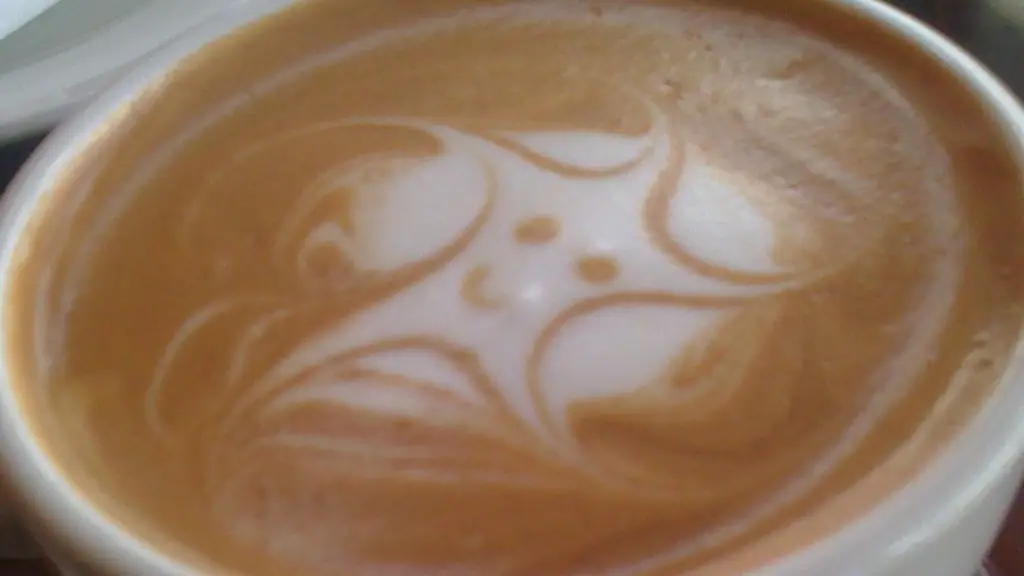The UK and Tea Drinking
Tea is one of the most popular beverages in the United Kingdom, consumed more than coffee. This is due to both historical and cultural factors. For centuries, tea has been integral to British culture, and has acquired a particular resonance in the country. This article will explore the reasons why tea is more popular than coffee in the UK and the impact it has had on the country.
The British began to drink tea during the 17th century, when it was still something of an exotic luxury. The East India Company imported tea from the Chinese, and it quickly became a drink of choice for many of the aristocracy. It was not until the Victorian era that tea-drinking became truly mainstream. In the 1800s, tea was much cheaper than it is today and very widely accessible to everybody.
However, there are more than just economic factors that have caused Britain to wield its teapot rather than its coffee pot. Tea-drinking has become an integral part of British culture and it is this that has kept its popularity rumbling on. The ritual of afternoon tea, especially in the summer, is something that the British have embraced wholeheartedly. This ritual underpins many aspects of the British Monarchy and has been a symbol of the high-life for centuries.
Increasing coffee power
It is true that the popularity of coffee has been on the rise for some time, with the rise of coffee culture and chains like Costa and Starbucks giving short-cuts to a more authentic coffee experience. There is also an increasing trend amongst youth in Britain towards more exotic types of coffee, such as from Latin American countries.
However, this trend is not likely to tip in favour of coffee anytime soon. Despite the more varied selection of coffee, tea still reigns over hot beverages in Britain. Tea has a strong feeling of familiarity, that is unlikely to be challenged by sporadic trends of coffee.
The Health Benefits of Tea
On top of this, there are numerous health benefits of tea. Tea is a rich source of antioxidants and may even help to reduce the risk of cancer. Tea has long been thought to be beneficial to the body, whilst coffee is sometimes seen as a lifestyle choice that can impair one’s wellbeing. The British public is generally conscious of their health, fueling the consumption of tea.
Tea consumption in the UK has seen steady growth in recent years, with both premium and speciality tea gaining in popularity. These special varieties of tea are becoming increasingly popular due to their health benefits and unique flavours. The focus on health in society likely has a large role to play and it is likely that this will build on the ever-strong British preference for tea over coffee.
The British Brewing Culture
There is also a firmly established tea-drinking ritual in Britain, which has been embedded in the culture since the 19th century. The microwave has made it easy for the British to rapidly make a cup of tea, giving them access to this all-day ritual throughout their lives.
Tea-drinking can easily be adapted to become a more social activity, such as a tea party. Tea is embedded much deeper within the nation’s culture than coffee, despite its comparative newcomership. Coffee’s association is less with advancement and sophistication, and more simply with a caffeine hit or morning indulgence.
High Tea
High tea exists as part of the traditional, opulent after-lunch routine. The practice of having tea served on high, comfortable seating, with a large selection of delicacies to go alongside it. In today’s society, it may exist more as a trend than a necessity, yet it still serves to perpetuate the royal facade of British culture.
The image of high tea has been entrenched in British culture, carrying with it rules of etiquette and understanding that cannot be replicated in coffee. Tea has become a symbol of luxury, carried to a higher notch with the inclusion of sandwhiches and cakes.
Tea Time Tourism
The unmistakable appeal of British tea has made it a pillar of Britain’s tourism industry. Thousands of visitors flock to Britain each year to experience the quirky atmosphere of afternoon tea.
From high-end services such as Cliveden House’s ‘Secret Garden’ tea menu to small-scale tea rooms and teahouses, tea remains a staple on the tourist path. The unique British atmosphere and comforting indulgence of a hot cuppa provide visitors with a point of difference to their tea-drinking experiences elsewhere around the world.
Tea and Beyond
Tea has become a more symbolic item than simply a hot beverage. It has taken on various shapes and sizes, from simple mugs of builders’ tea to more sophisticated creations such as the aforementioned ‘Secret Garden’ menu. This allows it to permeate everyday culture in Britain, ranging from the mundane back garden to the palace.
Tea has found its way into Britain’s culture in a way that coffee has so far failed to do. It will be difficult for British citizens to ever fully switch to coffee and abandon the traditions that have underpinned the nation’s culture for centuries.
Branding
Branding is a crucial factor that has contributed to the nation’s attachment to tea. One of the most familiar tea-brands in Britain is PG Tips. This brand is a classic example of a product engrained in British culture, through adverts, packaging and online presence.
With humourous, cheeky advertisements with British celebrities, PG Tips have created the image of a trusted tea-time companion that is unmistakably British. This affection to the brand has grown immensely in recent years, with it coming to mean far more than simply a brand of tea. A fuss-free flavour and no-nonsense attitude have made it one of the more popular brands in Britain.
Habitual Behaviour
Finally, there is the question of habit. The idea of a cup of tea after a hard day’s work is a tradition that many British people simply cannot let go of. Talking over a hot cup of tea is a pastime that millions of people in Britain enjoy, so consuming a different hot beverage than tea could feel strange.
As the British nation has become more health-conscious, they have looked towards tea to support an ever-increasing obsession with healthy living. This has further embedded the presence of tea within British identity and its culture.
Works cited
McGee, Sharyn. “British Tea Drinking: Past & Present Habits.” All About Tea, 20 October 2020, allabouttea.wordpress.com/2020/10/20/british-tea-drinking-past-present-habits/.
Heale, Trish. “7 Reasons the UK Loves Tea.” Food & Wine, 22 April 2018, www.foodandwine.com/lifestyle/uk-loves-tea.


